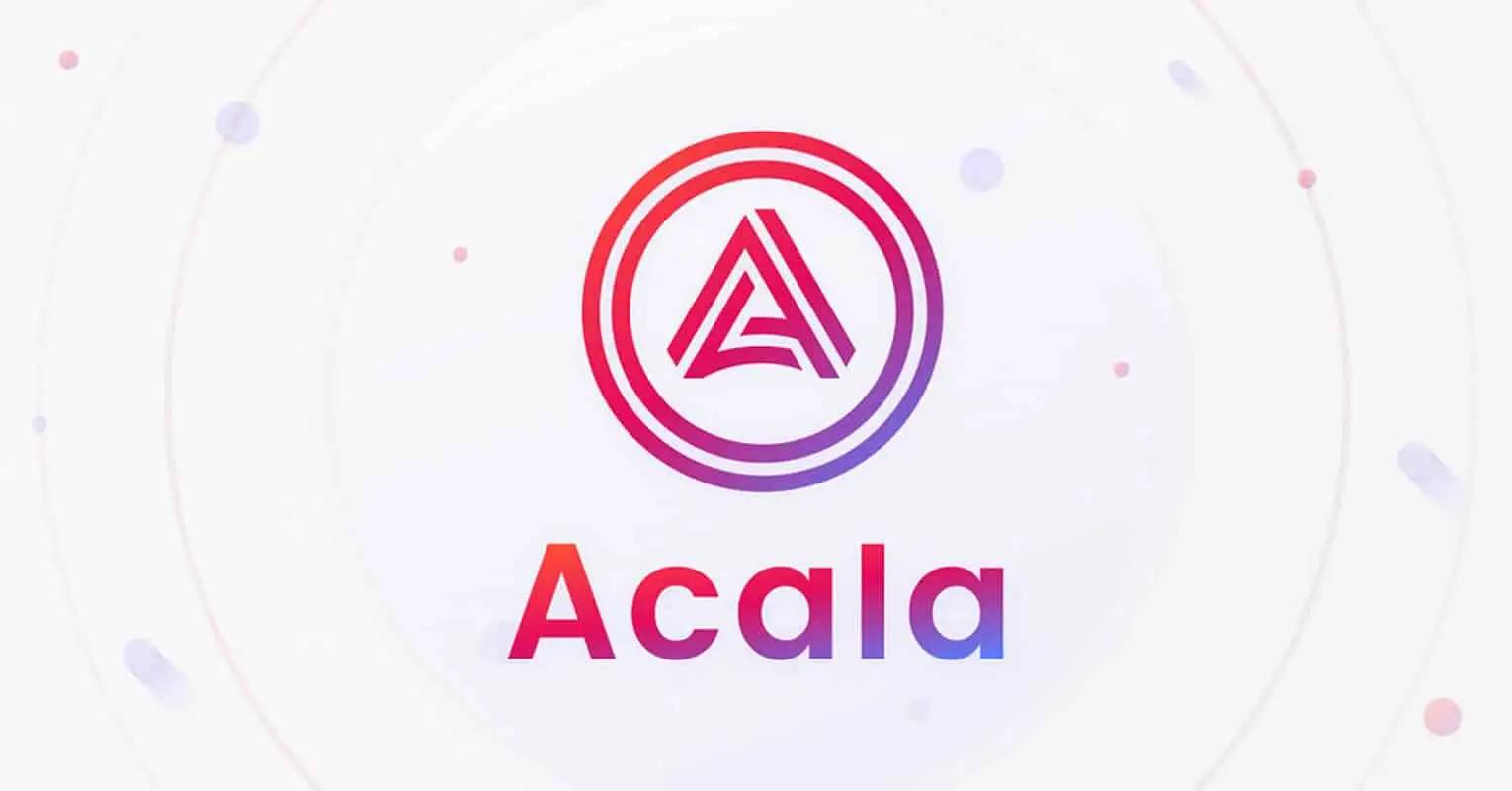Subscribe to wiki
Share wiki
Bookmark
Acala
The Agent Tokenization Platform (ATP):Build autonomous agents with the Agent Development Kit (ADK)
0%
Acala
Acala is a decentralized stablecoin platform powering cross-blockchain open finance applications for the Polkadot ecosystem. In August 2020, Acala closed a $7 million simple agreement for future tokens (SAFT) led by Pantera Capital.[1]
Overview
In August 2020, Acala closed a $7 million simple agreement for future tokens (SAFT) led by Pantera Capital. Other investors in the funding round include 1confirmation, Arrington XRP Capital, ParaFi Capital, Coinfund, Spartan Capital, and others.[4]
Acala has a governance token called ACA, that fills much the same role as MakerDAO's MKR. By adding a decentralized exchange to its suite of products, Acala is also able to improve the user experience for both loan creation and loan liquidation.[1]
Tokenomics
Acala has two key tokens widely utilized around its ecosystem. The first is its stablecoin $aUSD and the other is its native token $ACA.
Acala Token
The utility token within the Acala ecosystem is $ACA. It is deployed on the Polkadot relay chain and it powers the DeFi hub of Polkadot. As a widely utilized token, it is used for:
- Transaction Fees.
- Node Incentivisation
- Governance
- Algorithmic Risk Adjustment.
$ACA has a fixed supply of 1,000,000,000ACA which were minted in the genesis block at launch.[5]
ACA Mining and Distribution
According to the ACALA Token Economy Working Paper published by the ACALA team in January 2020, the total supply ACA Tokens will be minted at the launch of the mainnet and stored in the ACA Reserve Pool to be distributed in the following way.[3][4]
Acala Dollar
Acala Dollar (aUSD) is a decentralized stablecoin that allows users to send and receive USD across any blockchains connected to the Polkadot network.
Acala stable coin is pegged to USD at a 1:1 ratio. Basically, users will borrow a dollar by locking in selected crypto assets such as DOT, BTC, or ETH as collateral. Users will need to pay interest to maintain this loan.[2]
The Honzon Protocol
The Honzon Protocol is a set of mechanisms to manage aUSD loans with multiple collaterals, monitor, and adjust stability of aUSD based on various risk parameters such as collateral ratio, interest rates, debt level, etc.[4]
Each aUSD is backed in excess by a cryptocurrency asset and stabilized against the US Dollar, through the Honzon Protocol - a dynamic system of Collateral Position (CDP), on-chain governance and Key actors are encouraged. The CDP mechanism design is inspired by the first decentralized stablecoin project MakerDAO, which has become the DeFi building block in the Ethereum ecosystem. [4]
Together with an incentive, supply-demand balance, and risk management mechanism, which is a core component of the Honzon stablecoin protocol on the Acala Network, the value of a USD token is tied to the value of the US Dollar, with relative stability.[3]
Acala Founders
20.25% will be reserved for the ACALA founders.
Ecosystem
10.75% will be reserved for Ecosystem development, e.g. rewarded as grants and bounties.
Reserved
18% will be reserved for future investment rounds, private sales and public sales, which will be burnable if not required. 10% will be distributed to private investors.
Reward
34% will be distributed as rewards including 30% to participants in Acala's Initial Parachain Offering (IPO) and the rest to network contributors such as oracle operators and collators.[1]
Initial Exchange Offering
7% will be available to be sold to the public via initial exchange offering (IEO).[2]
Unless required as a contingency solution, no more ACA token will be minted afterward the launch of the Acala mainnet.[4]
Team
Acala Foundation’s research focuses on decentralized finance protocol and mechanism design, parachain economic modelling, and governance.
- Ruitao Su - Co-founder of Acala. He is also co-founder and CEO of Laminar, a leading synthetic asset and margin trading platform.
- Fuyao Jiang - Co-founder of Acala and founder of Polkawallet, Polkadot's mobile wallet.
- Bryan Chen - Co-founder of Acala. He is also co-founder and CTO of Laminar.
Contributors
- Jack Platts - Advisor
- Ermal Kaleci - Senior Software Engineer
- Shaun Wang - Senior Software Engineer
- Yuzhu Liu - Head of Collaborations
- Jianjiang Wang - Chief Technology Officer
- Bette Chen - Chief Operating Officer
- Hao Qiu - Full-stack Engineer
- Antonia Chen - Chief Economist
Partners
- Arrington XRP Capital
- Divergence Ventures
- P2P Capital
- Hashkey Capital
- Altonomy
- Hypersphere
- Parafi Capital
- CoinFund
- Spartan
- Goodmore Capital
- Pantera
- KR1
- 1confirmation
- Polychain
- Zee Prime Capital
- Web3 Foundation
- Web3 Capital
- Stake.Zone
- Dentons
- Digital Renaissance
- Berkeley Blockchain Xcelerator
- CMS Holdings
- SNZ Holding
- Digital Currency Group
Ecosystem Projects
This program identifies and supports projects that integrate with Acala's technologies (aUSD stablecoin, L-DOT staking liquidity, Decentralized Exchange, etc).
- Ontology
- Ren
- Dipole
- Subscan
- ChainX
- Phala Network
- Xanpool
- PLASM
- PolkaWorld
- ChainLink
- Moonbeam
- Interlay
- Centrifuge
- Subsocial
Proof-of-Liveness Partners
- Purestake
- Ankr
- P2P
- Chorus
- Onfinality
- SNZ Holding
- Ryabina
- Figment Network
See something wrong?
The Agent Tokenization Platform (ATP):Build autonomous agents with the Agent Development Kit (ADK)
